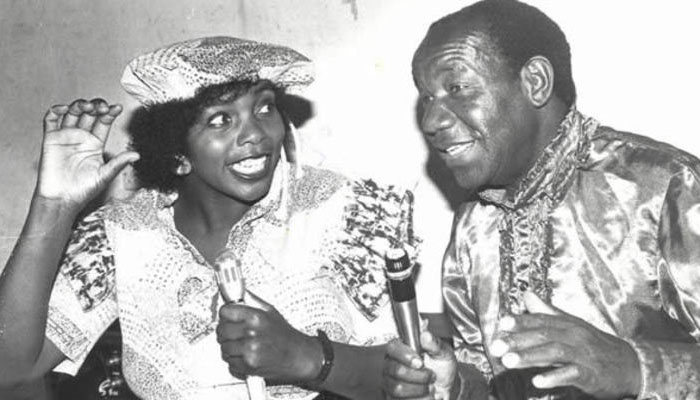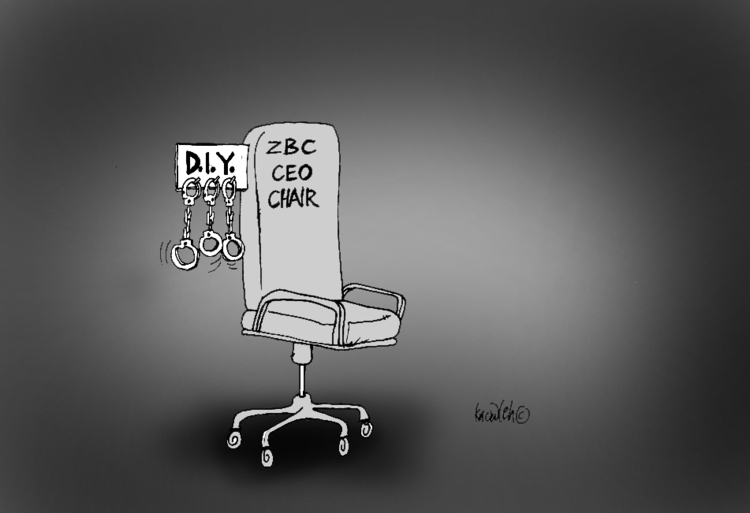
The Sunday Mail

THERE is a massive stink within Zimbabwe Music Rights Association (Zimura) and some musicians are on the verge of creating a parallel music revenue collecting agency, The Sunday Mail Society has established.
Zimura is a non-governmental revenue collecting society whose mandate is to protect and promote the rights of music composers, authors and publishers in Zimbabwe and internationally.
The association was established in 1982 and collects revenue from clients like broadcasters, hotels, airlines, bars, supermarkets etcetera. But disgruntlement seems to have reached unprecedented levels among musicians over the years as they claim to be getting infinite raw deals from Zimura.
Zimbabwe Musicians Union (Zimu) feel that the creation of an “artistes inspired” music revenue collecting association is the only panacea to their current predicament.
Musicians argue they have taken the route after realising dialogue with Zimura is proving futile.
It gets ugly!
The union is also threatening to ban Zimbabwe Broadcasting Corporation (ZBC) from playing their music in protest of the national broadcaster’s failure to remit overdue royalties.
The prevailing fracas has been motivated by the June 2018 royalty pay out done by Zimura, which saw the least paid artiste getting US$4,50 and the highest paid getting slightly above US$2,500.
Disbursed royalties were from Star FM’s 2016 airplay while ZiFM made pay outs from the period 2012 up to 2014.
ZBC, which has a huge debt of royalties estimated at over US$600 000 is said to have failed to remit anything completely.
In June 2017 the lowest paid artiste got US$2, 20 (so much for a member who pays a US$50 non-refundable registration fee).
Conversely, figures for the highest paid artiste dropped by US$2 000 from US$4 500 in the period in question a development that easily raises eyebrows.
This is against the backdrop that Zimura board members are alleged to be receiving around US$3 000 as sitting and clothing allowances for four annual meetings per year.
The hefty allowances are powered by a 40 percent retained by Zimura as administration costs levied on the royalties they collect on musicians’ behalf.
Fetid!
The levy is too high compared to what other collecting societies in the region are charging for their services.
Zimu chairperson Edith we- Utonga fired a salvo.
“We are tired of this nonsense. It seems like we keep going in circles. No one really wants to address our situation because prevailing circumstances are benefiting those in positions of authority. We have since engaged our lawyer, exploring options of setting up our own music royalties collection society,” revealed WeUtonga.
“Apart from Zimura short changing us, we also have ZBC that is not playing ball. The national broadcaster has pushed us into a corner and soon with the help of our legal team we are going to stop them from playing our music. ZBC is a broadcasting giant yet it refuses to remit what it owes and that is bad! They used to have a payment plan they followed well. What has gone wrong now?”
ZBC public relations manager Tsitsi Kanonge responds.
“We are not aware of any artistes who do not want us to play their music. However, I wish to reiterate that as ZBC we are now remitting royalties to Zimura consistently as per our commitment and agreement with them.
“… to ensure consistency of our payments, ZBC approached its bankers in May 2018 and resolved to service Zimura through a stop-order facility. The facility, which was effected in June has made it possible for ZBC to remit US$5 000 every fortnight to Zimura, this translates to US$10 000 a month. Zimura is aware of this and has confirmed receipt of these payments,” said Kanonge.
Zimura was incorporated in terms of Section 22 of the Companies Act (CAP190) and its operations are regulated by the Zimbabwe Intellectual Property Office, which falls under the Ministry of Justice, Legal and Parliamentary Affairs.
However, Harare based lawyer Gwinyai Tamuka Mharapara said it remained legally possible for Zimbabwe to have more than one money collecting society.
Musicians can choose a collecting society that offers the best deal but cannot be a member to more than one association.
South Africa has numerous revenue collecting societies among them The Southern African Music Rights Organisation (Samro) and Music Publishers’ Association of South Africa (MPA SA).
“There is nothing that can stop Zimu from creating their own money collecting society but Zimura is the one currently recognised by statutes since it was created by an Act. South Africa has more than one collecting society. Probably what musicians need is unity of purpose in pushing for accountability and so on. Collection needs statutory backing and that can be achieved if they unite,” notes Mharapara.
It is not a secret that there are administration expenses incurred in revenue collection.
However, it becomes a challenge when a collecting society levies almost 50 percent on the revenue they collect from different music users. After all, a simple analysis of the recent pay outs by Zimura tells a deafening story considering local, regional and international platforms artistes like Dr Oliver Mtukudzi or Jah Prayzah are played.
Granted revenues from royalties have been dropping due to a slump in advertising and delays in the process of trying to collect but burden should never be for the artistes only to bear.
WeUtonga reckons musicians are between a rock and a hard place.
“Zimura administration fee is just too high and needs to be revised downwards. What is surprising is they prefer giving us paltry royalties as low as US$4, 50 when the board is busy sitting pretty through hefty allowances they get from musicians monies. It’s time for musicians to stand up and fight. We cannot keep on suffering in silence due to fear of victimisation,” fumed WeUtonga.
“How come they find it easy to adjust their administration costs upwards yet royalties we get from them keep on shrinking with each passing year? Besides disbursements are now done once compared to twice a year previously. Addressing the issues at meetings has proved pointless as we keep getting a cold shoulder.”
Zimu members interviewed by this writer said venting against Zimura attracted adverse repercussions. Allegations are that Zimura executive led by Polisile Ncube is in the habit of silencing critics from musicians’ side by effectively employing the ‘divide-and-rule’ tactic.
Vocal critics are swiftly set for rewarding positions within the association’s board. For instance Zimu members argue First Farai used to represent them well, raising pertinent issues in meetings, so did Charles Charamba and Albert Nyathi but that stopped soon after they landed “lucrative posts” in the board, which consists of seven members.
A gospel musician who declined to be named for fear of retribution said, “I know how these guys operate. It’s better to keep quiet and get that US$5. The moment you complain you will next time get US$1 as royalties. What we need though at the moment is an external auditor to look into Zimura books.”
Zimura chairperson Albert Nyathi sings a different hymn.
“Where money is involved, people will always say things. Some of these musicians that end up saying unfounded things and misinforming the public will have in the past failed to win elections. How can someone want to claim more royalties when distinguished stations have log sheets that show the exact number of times an artiste’s music is played and how much they must get,” queried Nyathi.
“Collecting money is an expense. Movements around the country, rentals, water and electrical bills push the administrative costs up. The administration costs range from 28 percent to 40 percent depending on costs for the period. Maybe what you need to know is royalties from record companies are now as good as dead and musicians have turned to Zimura for revenue hence these challenges. But if you notice it is the least paid artistes that are causing mayhem.”
Elly Mhungu, one of the least paid artistes of the June 2018 pay-outs weighs in.
“It’s us artistes that run Zimura and we must not blame the association because they are not getting money. ZBC is Zimura’s biggest cash-cow and if they don’t remit then there is a challenge. There are no problems at Zimura,” said Mhungu.
And Zimura CEO refutes hefty packs allegations.
“Sitting allowance fro board members are set by the general membership at annual general meetings and are currently at US$50 per board member,” said Ncube, adding, |Zimura has agrreed on a payment plan with ZBC. Meanwhile, Zimura members are signing a petition to be delivered to the Ministry of Justice to ask Government to intervene on the ZBC debt, which is above US$600 000.”






